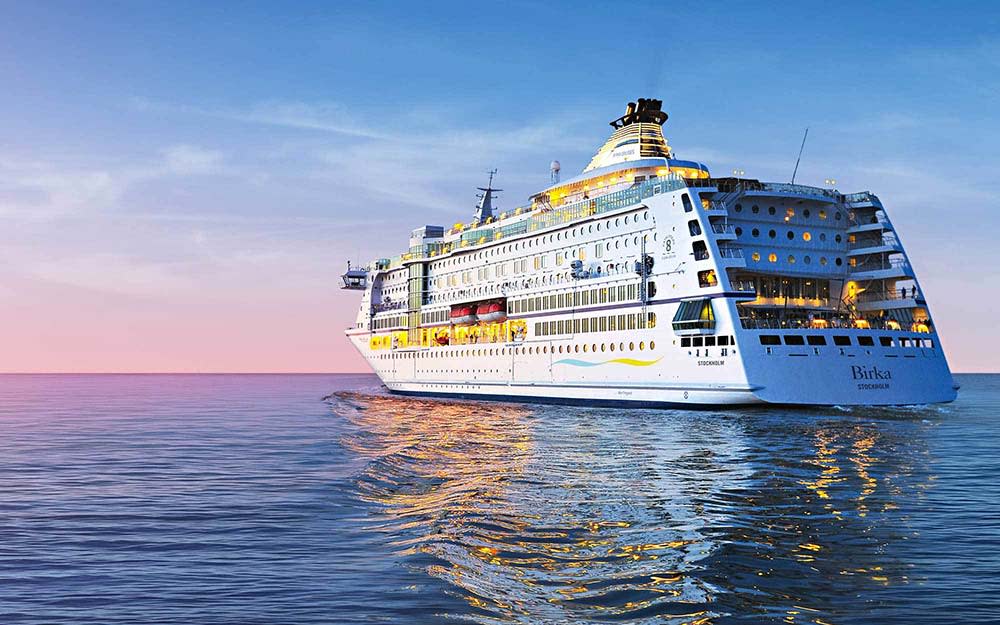Collapse of Baltic line caps off a torrid week for the cruise industry

Birka Cruises, which has been sailing for almost half a century, has announced that it is ceasing operation, citing “the financial impact of Covid-19” along with uncertainty facing the industry.
Cruise experts said this shows how “fragile” the industry is after months without passengers, and that other lines may not survive.
But at this stage it is unlikely to affect Britons who long to return to sailing, with an exact date of when they can embark unclear after the Foreign Office updated its guidance – advising against all travel by cruise ship.
The cruise line, part of the Finish Eckero Group, operated a single ship, the 1,430-passenger Birka Stockholm, that sailed between Stockholm, Sweden and Mariehamn in the autonomous Åland Islands, where the company is based.
In line with the rest of the industry, Birka Cruises paused its sailing in mid-March. Only a handful of lines have returned to the continent’s rivers and coasts.

Now redundancy talks have begun with the company’s 509 employees, 466 of whom worked aboard the ship.
In a statement on its website, the cruise line said: “All of us who have worked at Birka Cruises want to take the opportunity to thank you for all the happy laughs and encouraging comments over the years.
“It is said that the guest does the party and you, as our guest, really did. Big thanks for everything.”
Jane Archer, one of the UK’s leading cruise experts, told Telegraph Travel: “Given Birka Cruises is a very niche cruise-ferry operator in the Baltic Sea, I don’t think its demise will have a huge direct impact on the UK or the way other companies conduct their businesses.
“However, the collapse of any shipping line is bad news. It underlines just how fragile the industry is as a result of this terrible pandemic that has forced all cruise lines around the world to halt their sailings.”
Cruise writer John Wilmott said: “Small, niche cruise lines are likely to be most at risk due to travel’s shutdown, in parallel with any other company in the travel industry.
“It depends on a cruise line’s financial robustness and their continuing arrangements with banks and investors whether they will ride out the storm.
“With cruising likely to be the last type of travel to get back anywhere near normal, other casualties cannot be ruled out.”
Certainly Birka Cruises isn’t the only Swedish operator to have been dealt a crippling blow by coronavirus.
Swedish shipping company, Silja Line, has stated that it will be making 300 job cuts due to the ongoing effects of the pandemic. Owned by the AS Tallink Grupp, Silja reported a 72.5 per cent decrease in the number of passengers in June 2020 compared to the previous year.
The collapse of Birka Cruises and Silja Line comes after Spanish cruise line Pullmantur – which is partly owned by Royal Caribbean – filed for “reorganisation.”
“Despite the great progress the company made to achieve a turnaround in 2019 and its huge engagement and best efforts of its dedicated employees, the headwinds caused by the pandemic are too strong for Pullmantur to overcome without a reorganisation,” said Pullmantur.
Pullmantur’s three ships – the Sovereign, Monarch, and Horizon – are incorporated by Royal Caribbean, who may send all three to the scrap yard.
Last month, Carnival Corporations’ Costa Victoria, a 2,394-passenger capacity ship with only 23 years of service, became the first ship to be sent to the scrappers as a consequence of the coronavirus pandemic.
The new decade was meant to be a golden era for cruising; 19 new ships, including Richard Branson’s $710 million (£563 million) Scarlet Lady, were due to launch this year alone.
Ben Cordwell, travel and tourism analyst at GlobalData, said: “The cruise industry will go through a period of self-reinvention, which will likely be in the form of stringent social distancing, as well as a number of health and safety procedures.
“It will be interesting to see if these measures attract customers or deter them in the months ahead. Cruise companies could find that the real challenge is getting customers back onto vessels.”


